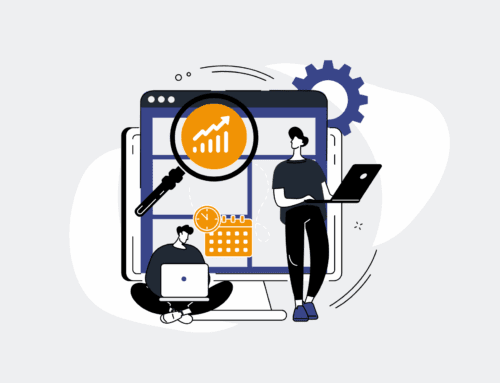Staying Ahead: Latest Trends and Innovations in AI Resume Parsing Technology
In the rapidly evolving landscape of human resources, the ability to efficiently identify and engage top talent is paramount. Traditional resume screening processes, often manual and labor-intensive, are increasingly becoming bottlenecks in this pursuit. This is where AI resume parsing technology steps in, transforming from a novel concept into an indispensable tool for forward-thinking organizations. At 4Spot Consulting, we’ve witnessed firsthand how strategic integration of AI can redefine operational efficiency, and resume parsing is a prime example of its transformative power in HR and recruiting.
The journey of AI in resume parsing has been remarkable. What began as simple keyword matching has matured into sophisticated semantic analysis, capable of understanding context, nuance, and potential beyond surface-level data. Early parsers were prone to misinterpretations, struggling with varied formats, unconventional job titles, or skills listed ambiguously. Today, the leading-edge systems employ deep learning models, natural language processing (NLP), and even computer vision to extract, categorize, and interpret a vast array of information from resumes with unprecedented accuracy and speed.
The Evolution of Precision: Beyond Keywords
Modern AI resume parsers don’t just extract names, contact details, and employment history; they delve much deeper. They can infer soft skills from descriptive text, identify career trajectories, pinpoint specific project contributions, and even detect potential biases embedded within the language of a resume. This semantic understanding allows recruiters to move beyond a restrictive checklist of keywords and truly understand the candidate’s holistic profile. This shift is critical for building diverse teams, as it helps mitigate unconscious bias that can creep into manual screening, promoting a more equitable and meritocratic hiring process.
One of the most significant innovations is the integration of predictive analytics. Beyond simply parsing data, AI can now analyze historical hiring data, performance metrics, and even company culture fit to predict a candidate’s likelihood of success in a specific role. This capability fundamentally changes the recruiter’s role, allowing them to focus on high-potential candidates rather than sifting through hundreds of unqualified applications. For an HR leader, this means not just saving hours, but making more strategic hires that directly impact business outcomes and reduce costly turnover.
Real-time Enrichment and Dynamic Matching
The latest generation of AI parsers isn’t operating in a vacuum. They are increasingly integrated with external data sources for real-time enrichment. Imagine a system that not only parses a candidate’s resume but simultaneously scans public professional profiles, academic databases, and even project portfolios to build a more comprehensive and current candidate profile. This dynamic data integration provides a 360-degree view, offering insights that a static resume alone could never provide. This allows for a much richer, more informed decision-making process.
Furthermore, AI-powered matching algorithms are becoming incredibly sophisticated. Instead of simply looking for exact skill matches, these systems can identify analogous skills, transferable experience, and potential for growth. If a role requires “project management,” the AI can recognize experience in “team leadership” or “operations coordination” as highly relevant, broadening the talent pool without sacrificing quality. This is particularly valuable in niche industries or for roles where precise skill definitions are constantly evolving, ensuring businesses don’t miss out on ideal candidates simply because their resume didn’t use the exact right phrasing.
Addressing the Challenges: Bias and Transparency
While the advancements are impressive, it’s crucial to address the inherent challenges. The primary concern remains algorithmic bias. AI systems learn from the data they’re fed, and if historical hiring data contains biases (e.g., favoring male candidates for engineering roles), the AI can perpetuate and even amplify these biases. Innovations are focusing on “fairness-aware” AI, developing techniques to identify and mitigate bias in both training data and algorithmic output. Transparency and explainability in AI parsing—understanding *why* a candidate was flagged as a good fit—are becoming critical features, moving away from black-box approaches to build trust and accountability.
Another area of innovation is in handling unstructured and non-traditional data. Resumes are evolving, sometimes including video links, personal websites, or digital portfolios. Advanced AI is adapting to parse and interpret these diverse data types, ensuring that innovative candidates aren’t overlooked because their application doesn’t fit a conventional mold. This flexibility is vital for businesses looking to hire for the future, not just the past.
The Strategic Imperative for HR Leaders
For HR leaders, COOs, and recruitment directors, understanding these trends isn’t just about curiosity; it’s a strategic imperative. The competitive advantage lies not in simply adopting AI, but in integrating it thoughtfully into an overarching automation strategy. This means selecting parsing solutions that are highly configurable, integrate seamlessly with existing applicant tracking systems (ATS) and CRM platforms, and provide actionable insights, not just data dumps.
At 4Spot Consulting, our OpsMesh framework guides businesses in implementing these sophisticated systems. We help clients move from fragmented manual processes to fully integrated, AI-powered workflows that eliminate human error, reduce operational costs, and significantly increase scalability. An automated resume parsing system, connected to your CRM and ATS, isn’t just about speed; it’s about making smarter, more strategic hiring decisions that align directly with your business goals. By leveraging AI to automate the laborious initial screening, your high-value HR professionals are freed up to engage in more meaningful candidate interactions and strategic workforce planning.
The future of AI resume parsing is bright, promising even greater accuracy, deeper insights, and more equitable hiring processes. Staying ahead means embracing these innovations not as mere tools, but as strategic partners in building the workforce of tomorrow.
If you would like to read more, we recommend this article: Mastering AI-Powered HR: Strategic Automation & Human Potential







